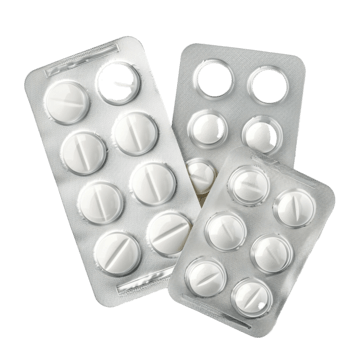Furosemide

Furosemide 20mg, 40mg, 80mg
Furosemide is a potent loop diuretic used to treat fluid retention (edema) and high blood pressure (hypertension). It works by preventing the reabsorption of sodium and chloride in the kidneys, leading to increased urine production and a reduction in excess fluid buildup in the body. Commonly prescribed for conditions such as heart failure and kidney disorders, Furosemide helps alleviate symptoms such as swelling and can improve overall cardiovascular health.
Order NowDescription
Furosemide is a potent loop diuretic medication primarily used to treat conditions associated with excess fluid retention, such as heart failure and certain kidney disorders. It works by inhibiting the reabsorption of sodium and chloride in the kidneys, leading to increased urine production and a reduction in fluid overload.
Uses / Indications
- Congestive heart failure (CHF)
- Pulmonary edema
- Edema associated with liver cirrhosis
- Renal diseases causing fluid retention
- Hypertension (high blood pressure) when used in certain cases
Dosage and Administration
Adults:
Initial dosing typically ranges from 20 mg to 80 mg per day, which can be adjusted based on the patient’s individual response and medical condition.
Children:
Dosage is usually based on weight and medical condition; consult a healthcare provider for specific recommendations.
Note: Dosage may vary based on medical condition or doctor’s advice.
How It Works (Mechanism of Action)
Furosemide acts on the loop of Henle in the kidneys, where it inhibits the Na-K-2Cl cotransporter. This action blocks the reabsorption of sodium, chloride, and potassium, leading to enhanced diuresis and decreased fluid overload in the body.
Side Effects
Common side effects:
- Increased urination
- Electrolyte imbalances (e.g., low potassium levels)
- Dizziness or lightheadedness
- Headache
Rare/serious side effects:
- Severe allergic reactions (rash, swelling, difficulty breathing)
- Severe dehydration or electrolyte imbalances
- Kidney damage (rare)
Seek medical attention if serious side effects occur.
Precautions / Warnings
- Inform your doctor if you have kidney problems, liver disease, or are pregnant/breastfeeding
- Use caution when taking other medications that may affect kidney function
- Regular monitoring of electrolyte levels may be necessary during treatment
- May cause dizziness—use caution when driving or operating machinery
Drug Interactions
Furosemide may interact with:
- Other diuretics
- Lithium (may increase lithium levels)
- Nonsteroidal anti-inflammatory drugs (NSAIDs)
- Certain antibiotics (may affect effectiveness)
Always inform your healthcare provider about any other medications or supplements you’re taking.
Storage Instructions
- Store at room temperature (20°C–25°C / 68°F–77°F)
- Keep away from moisture, heat, and direct sunlight
- Liquid forms should not be frozen
- Keep out of reach of children
Missed Dose / Overdose
Missed a dose?
Take it as soon as you remember. If it’s almost time for your next dose, skip the missed one. Do not double up.
Overdose symptoms:
- Severe dehydration
- Rapid or irregular heartbeat
- Confusion or lethargy
- Severe electrolyte imbalances
Contact a poison control center or seek emergency medical help immediately.
Contraindications
- Allergic to furosemide or sulfonamide medications
- Anuria (lack of urine production due to kidney failure)
Brand Names / Alternatives
- Lasix
- Furoside
- Diurel
- Generic name: Furosemide

